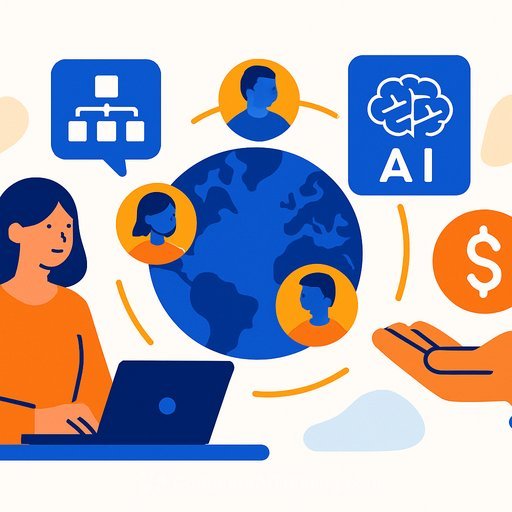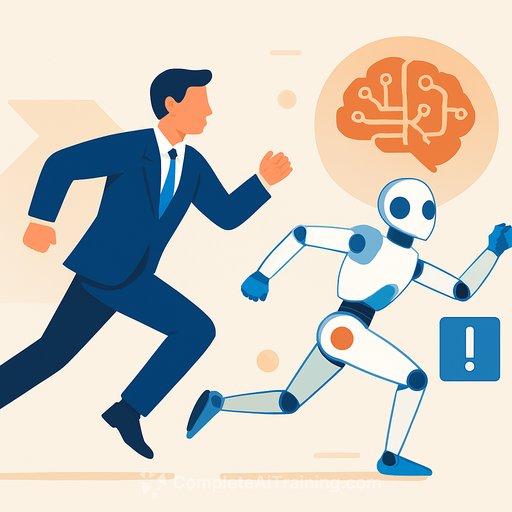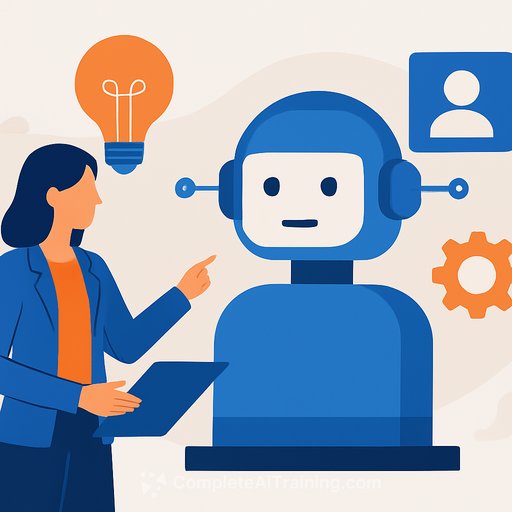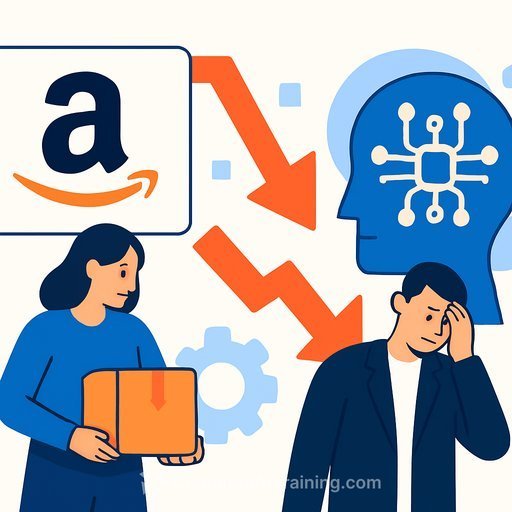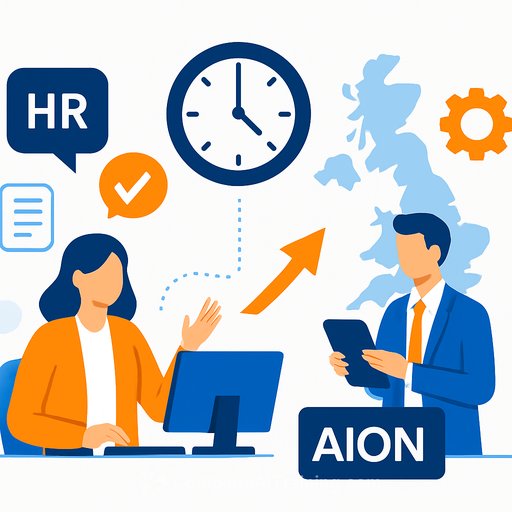AI Is Resetting HR's Operating System: Insights from Deel's Global Report
HR has long been built on conversation, context, and local rules. That hasn't changed. What's changed is our ability to run that human work at global scale without drowning in admin. AI gives HR teams a way to adapt processes to local laws, languages, and payroll requirements-without losing the personal touch.
For global companies, this isn't a bonus feature anymore. It's basic infrastructure for running distributed teams with confidence.
Why this shift matters now
HR looks different in every country-contracts, benefits, payroll taxes, and even terminology. That complexity made change slow. AI closes the gap between global intent and local execution, so HR can move faster while staying compliant.
According to field data highlighted in Deel's report, adoption is rising fast as teams look to reduce manual work, lower error rates, and deliver better employee support.
What Deel is building
Deel operates in 150+ countries and serves 35,000+ companies with an end-to-end platform that centralizes contracts, payroll, compliance, benefits, and equipment-under one interface backed by automation and data.
In summer 2025, the company shipped 500+ updates across payroll, hiring, and HR. Highlights include:
- Anytime Pay (on-demand pay)
- Corporate cards in 130+ countries
- Redesigned visual payslips and payroll dashboards
- A knowledge hub covering 150+ countries
- A unified support system
AI Workforce: agents that do the work
Deel introduced AI Workforce-specialized agents for HR and payroll tasks informed by 2,000+ local experts across 150+ countries. These agents handle recruitment, leave management, payroll control, IT equipment, and offboarding. Performance is tracked by tasks completed, hours saved, and errors prevented.
The company also expanded immigration with Business Visas for compliant short-term travel and secured its first independent immigration license in the UAE. This extends support from hiring to global mobility.
What this looks like in practice
Hiring a developer in Colombia? HR can get the total cost of employment, net pay after deductions, required benefits, and a compliant, ready-to-sign contract in the right language-within minutes, not weeks.
- Candidate screening: rank applicants by objective fit, surface red flags, and highlight standout signals.
- Employee self-service: chat interfaces answer "How many vacation days do I have left?" and "What's the status of my payroll request?" in real time.
- Leave and payroll control: standardized checks reduce back-and-forth and prevent costly errors.
The bigger upside is prediction. Systems can flag declining engagement, performance gaps across teams, or high flight risk-and nudge managers with proactive steps. In one case, the platform spotted a steady drop in CSAT inside a customer service team, prompting early intervention that prevented departures.
Adoption is accelerating
Deel reports sharp growth in usage of AI features across its platform. External research shows that by 2024, roughly 38% of HR teams had adopted AI in some form, with adoption expected to double by 2026.
The takeaway: the tools are here, and the business case is real.
Guardrails and ethics
Deel positions AI as decision support-final calls stay with people. Employees get clarity on what data is collected, how it's stored, and who sees it.
The system follows strict privacy standards, including Europe's GDPR, with granular permissions by role. For reference, see the EU's guidance on data protection here.
Modular by design
Companies don't need to replace their entire stack. Deel's platform is modular and can be white-labeled, so teams can adopt only what they need without a visible shift for employees or candidates. That's especially useful for legacy environments and regulated industries.
The hard part is culture
Technology is the easy piece. The real work is manager mindset, employee trust, and clear implementation. Data-driven HR only works when people are ready to use it-and when processes are built with intention.
The bottom line
Across 15 time zones, 100+ country regulations, and rising expectations for transparency, AI isn't optional. It's the operating base for modern HR.
Deel's metrics reflect the demand: 75% year-over-year revenue growth, double-digit operating margins, and a 164% jump in HR and payroll solutions. The message is simple: AI doesn't replace people-it replaces paperwork, forms, regulatory overhead, and time sinks.
Quick actions for HR leaders this quarter
- Pick two workflows with clear ROI (e.g., candidate screening and employee self-service). Define KPIs: time-to-hire, ticket deflection, error rate.
- Pilot in one country or business unit for 60-90 days. Keep a human in the loop for all decisions.
- Set a data policy and access model by role. Document review checklists to prevent bias and errors.
- Train HRBPs and hiring managers on prompts, evaluation criteria, and exception handling.
If your team needs structured upskilling, see curated AI learning paths by job here.
Tags: AI; Human Resources; Deel
Your membership also unlocks:

